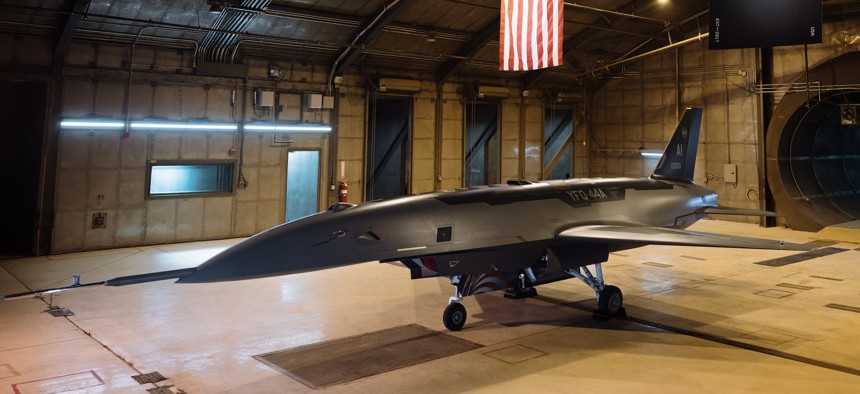
The Air Force has started ground-testing the prototype robot wingmen offered by General Atomics and Anduril ahead of their first flight this summer, the service announced today.
The tests of the collaborative combat aircraft will focus on “propulsion systems, avionics, autonomy integration, and ground control interfaces. These assessments will validate performance, inform future design decisions, and prepare the systems for flight testing later this year,” the service said.
The drones will be based at Beale Air Force Base, California, at a “CCA Aircraft Readiness Unit” that will someday deploy the drones “worldwide at a moment’s notice,” the service said. Since the unit won’t have to fly a high number of daily sorties, the number of airmen required to maintain the drones will be “substantially lower” than other programs, the service added.
The drones will operate as companions to fighter jets such as the F-35, F-22, and future F-47, and possibly other aircraft such as the B-21 bomber. In March, the service announced that General Atomics’ prototype would be designated YFQ-42A; and Anduril’s, YFQ-44A.
After the prototypes fly this summer, officials will decide in fiscal 2026 whether to build one or both of the companies’ offerings as “increment one,” the first tranche of CCAs.
“Starting ground tests is a key milestone for the CCA Increment 1 program,” said Air Force Chief of Staff Gen. David Allvin. “This phase bridges the gap between design and flight, reducing integration risks, boosting confidence, and laying the groundwork for a successful first flight and eventual fielding to the warfighter.”
The Air Force developed its CCA program to provide “affordable mass” for its fleet and plans for this first batch of CCAs to be missile carriers—at a price of $25 to $30 million each. The service plans to start developing the next set of CCAs—“increment two”—in 2026.
The post Air Force begins ground testing for CCA program appeared first on Defense One.




